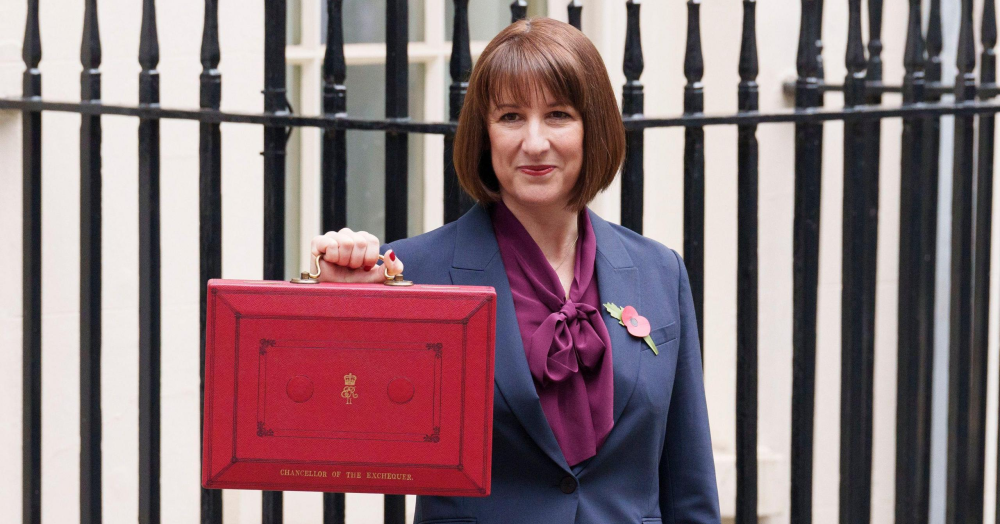Chancellor Rachel Reeves delivered Labour’s first Autumn Budget in 14 years, addressing cost-of-living pressures and outlining new housing initiatives to support renters, first-time buyers, and homeowners.
Key Housing Announcements:
- Affordable Housing Investments: Labour has committed £5 billion to advance their housing plan, with a £500 million boost specifically for the Affordable Homes Programme. This initiative is set to fund new developments, including Liverpool Central Docks, where 2,000 new homes will be built alongside a waterfront transformation.
- Energy-Efficient Homes Initiative: In line with sustainability goals, £25 million is allocated to deliver 3,000 new energy-efficient homes across the country, with 100% of these aimed at affordability. This program is expected to meet both housing demand and energy efficiency goals, potentially reducing energy costs for low-income households.
- Capital Gains Tax: Despite speculation of an increase, Capital Gains Tax on residential property will remain unchanged. This has implications for landlords, as an increase in tax could have affected rental property profitability. Many landlords had sold rental properties in anticipation, yet the unchanged tax rates may now stabilize landlord retention in the rental market.
Mortgage and Stamp Duty Updates:
- Mortgage Market Support: Mortgage rates continue to place pressure on buyers, particularly first-time buyers. The government has pledged to engage with the industry on making the Mortgage Guarantee Scheme a permanent support option. If enacted, the scheme would help buyers secure loans with just a 5% deposit, providing relief to those struggling with affordability.
- Stamp Duty Adjustments: While there was no announcement extending the stamp duty relief for first-time buyers, which ends in March 2025, there are notable changes for other types of buyers:
- First-Time Buyers: Starting in March 2025, the threshold for stamp duty exemption will drop from £425,000 to £300,000. As a result, a first-time buyer purchasing an average-priced home at £370,759 could expect to pay £3,538 in stamp duty, compared to paying nothing under current rules.
- Second Home Purchases and Landlords: The stamp duty surcharge for second homes will increase from 3% to 5% on October 31, 2024. This increase means that landlords and others purchasing additional properties could face an additional charge of more than £7,000 on the average-priced home. According to property expert Tim Bannister, while this might initially discourage investment, it is likely to become another regular cost factored in by landlords over time.
- General Stamp Duty Thresholds: In March 2025, the threshold for stamp duty on home purchases will revert to £125,000 (from the current £250,000). For buyers purchasing homes above this value, stamp duty costs may rise by up to £2,500, affecting affordability.
Housing Market Trends and Buyer Activity:
- Market Recovery and Buyer Interest: The traditionally busy autumn season has seen a 29% increase in sales agreements compared to last year’s slower market, while buyer inquiries to estate agents have risen by 17%. This reflects a notable shift from the more subdued 2023 market.
- Housing Inventory and Pricing Sensitivity: The number of homes for sale is up 12%, providing buyers with greater choice. However, house prices grew by only 0.3% this month, compared to a typical seasonal increase of 1.3%. This signals that the market remains price-sensitive, and sellers may need to set realistic asking prices to secure buyers.
- Timelines for Home Purchases: Due to the current average of 152 days to complete a property purchase, buyers hoping to close before the upcoming stamp duty changes will need to act quickly. Those looking to avoid the higher charges may benefit from moving their plans forward.
Summary:
This Autumn Budget reflects Labour’s emphasis on improving housing affordability and supporting a stable market for both first-time buyers and renters. Key measures focus on increased funding for affordable housing, maintaining current Capital Gains Tax levels for landlords, and offering potential mortgage support. However, upcoming changes to stamp duty rates may encourage some buyers and landlords to accelerate their plans before increased costs come into effect.
The budget’s influence on the housing market will depend on both government implementation and market responsiveness, making it important for buyers, sellers, and agents to stay informed and act quickly where needed.
If you are thinking of selling or moving home you only have 5 months to act before the next changes come into force on 31st March, call us today for a free advice meeting on 01748 834373

